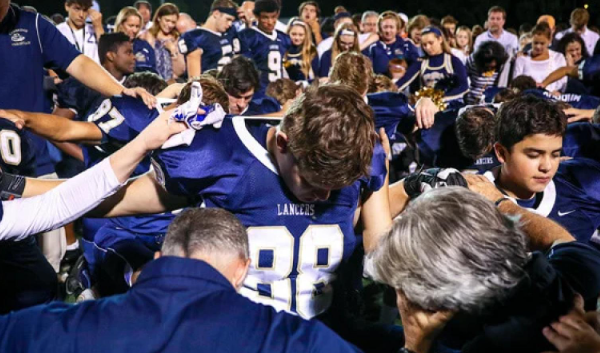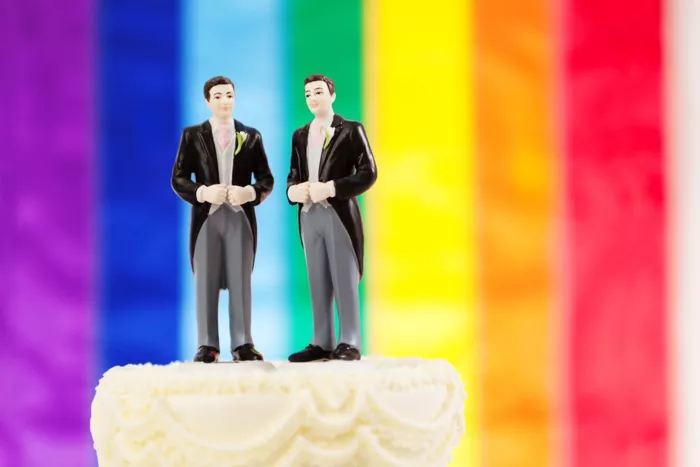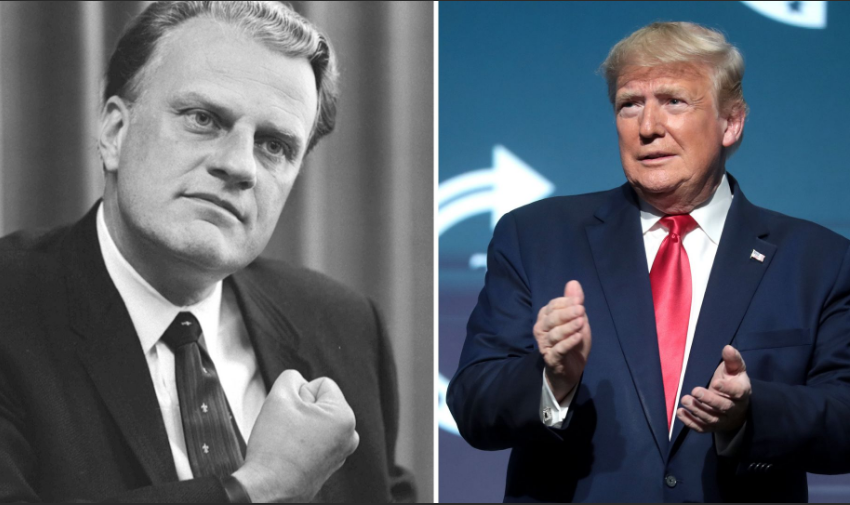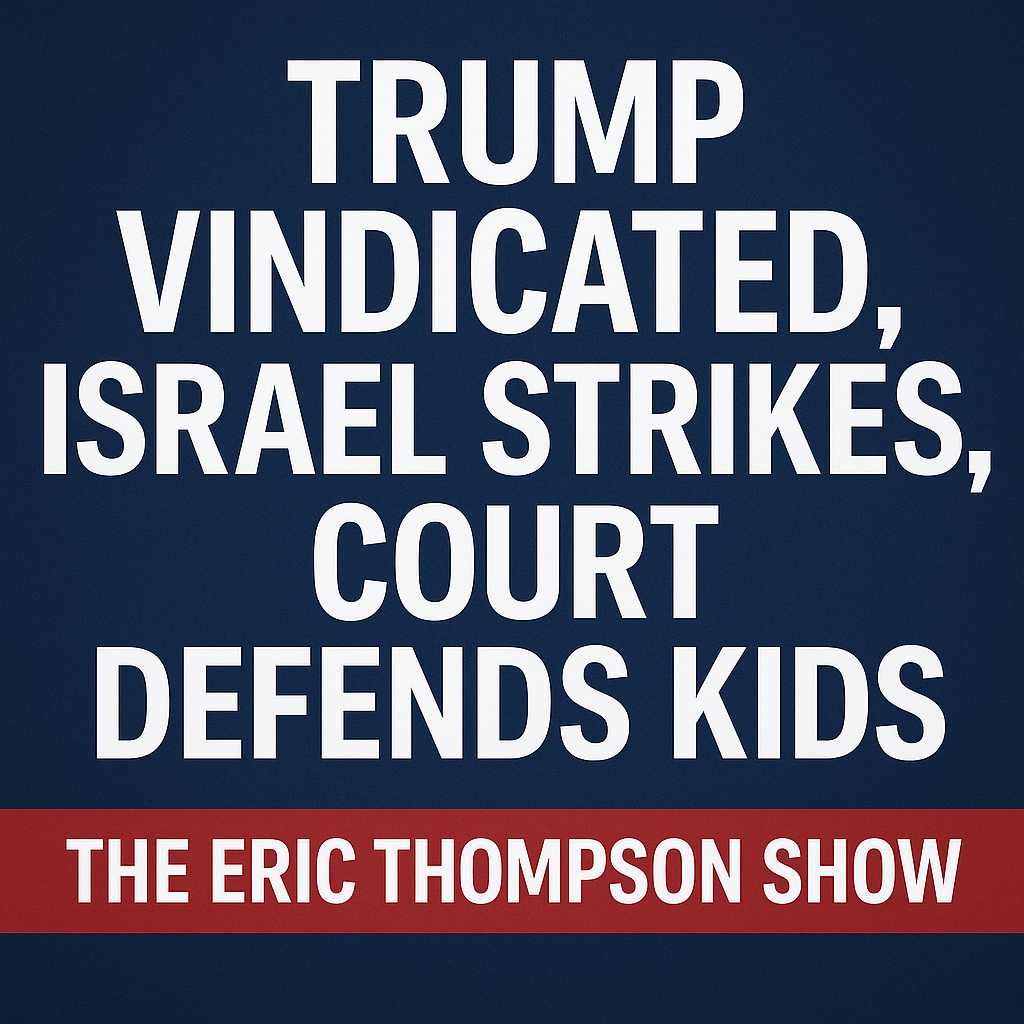Football Greats, Country Stars Urge SCOTUS: Protect Prayer at Public Games
A coalition of former NFL players, country music legend Craig Morgan, and Christian legal advocates has filed a powerful amicus brief with the U.S. Supreme Court, urging the justices to uphold the right to public prayer at school sporting events on public property. Their message is clear: voluntary prayer, especially at community-centered activities like football games, is a cherished tradition—not a constitutional violation.
At the center of the case is Cambridge Christian School v. Florida High School Athletic Association (Docket No. 24-1261). The dispute began when the Florida High School Athletic Association (FHSAA) prohibited Cambridge Christian School (CCS), a private Christian institution, from broadcasting a prayer over the loudspeakers before a state championship football game held at a government-owned stadium. Both teams involved in the game were Christian schools and had requested permission for the brief prayer, yet the FHSAA denied it, citing concerns over the Establishment Clause of the First Amendment.
Now, after years of litigation, Cambridge Christian is appealing to the Supreme Court. With support from First Liberty Institute and Jones Day, the school’s legal team is arguing that the government cannot silence private religious expression simply because it occurs on public property.
The amicus brief, filed on July 10, includes a host of prominent voices. Among them are legendary NFL players such as Shaun Alexander and Steve Largent, Super Bowl champion Ben Watson, and country music star and U.S. Army veteran Craig Morgan. Their united front stresses the cultural and moral significance of prayer in American life—especially in high school athletics, where young men and women are shaped both on and off the field.
These faith-filled sports icons contend that the act of praying before games is not state endorsement of religion but an expression of religious liberty by private individuals. “Voluntary prayer before games has long been a unifying and uplifting tradition that reflects the heart of many communities,” reads the brief. “To silence that expression is to erode the very freedom the First Amendment was designed to protect.”
This case echoes the 2022 Kennedy v. Bremerton School District decision, in which the Court ruled in favor of Coach Joe Kennedy, who was fired for praying on the 50-yard line after games. In that case, the Supreme Court held that personal religious expression by public employees does not violate the Establishment Clause. Cambridge Christian and its supporters argue that the same principle should apply when private religious speech is conducted in a public venue.
According to First Liberty Institute, which is representing the school, the FHSAA’s censorship sets a dangerous precedent. “The government has no business silencing religious voices in the name of neutrality,” said Jeremy Dys, senior counsel at First Liberty. “Banning private prayer over a microphone is not neutrality—it’s hostility.”
Supporters of the school argue that denying microphone access for religious speech while allowing secular messages is a clear form of viewpoint discrimination, something the Supreme Court has consistently ruled against. The school contends that because the stadium allowed announcers and other forms of amplified speech, the prayer should not be excluded merely for its religious content.
The legal team also emphasizes the narrow scope of the request. Cambridge Christian is not asking for the state to endorse or promote prayer—only for the freedom to offer a brief voluntary invocation between two like-minded schools at an event their own students earned the right to attend.
Justice Samuel Alito had previously acknowledged concerns about the lower court’s handling of the case when he wrote in a statement earlier this year that “the lower court’s decision appears to conflict with this Court’s precedents.” The growing chorus of support for Cambridge Christian suggests that many view this not just as a case about a football game, but as a battleground for religious liberty in America.
The docket for case number 24-1261 confirms the petition for a writ of certiorari is pending before the Supreme Court, with amici briefs like this one providing moral and constitutional reinforcement. If the Court takes up the case, it could result in another landmark decision affirming the role of faith in public life—particularly for schools and students navigating an increasingly secularized culture.
Faith leaders, conservative advocates, and millions of parents across the country are closely watching the case. Many see it as a necessary counterbalance to years of judicial decisions that have slowly restricted religious expression in schools, often under the guise of government neutrality.
Craig Morgan, speaking as a father and veteran, remarked in the filing that public expressions of faith—especially in moments of achievement or struggle—help build character and bring people together. “We don’t need less prayer at games,” he stated, “we need more courage to protect it.”
The outcome of this case could determine whether Christian schools and other faith-based institutions have equal access to public platforms—or whether they must censor their convictions simply because of the setting. For the thousands of young athletes who view prayer as an essential part of their sportsmanship and community identity, the stakes could not be higher.
As the Supreme Court considers whether to hear the case, the message from America’s faithful is loud and clear: the First Amendment protects the freedom to speak—and that includes speaking to God, even before kickoff.
Keywords:
Cambridge Christian School, public prayer, Supreme Court, FHSAA, First Liberty Institute, football prayer case, religious liberty, Craig Morgan, Shaun Alexander, Christian schools, Establishment Clause, SCOTUS 2025





